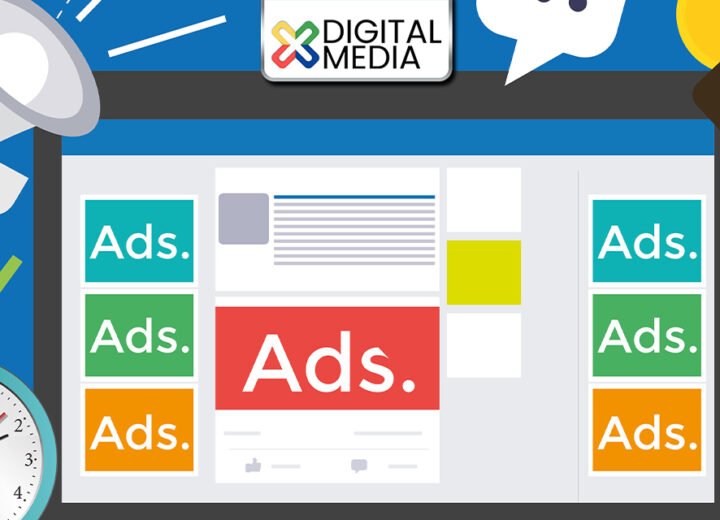In the pay-per-click (PPC) model of digital advertising, companies pay ad publishers when users click on their ads. A lot of Digital Ads Management Services and advertisers use the “PPC” business model, even though it’s most commonly used to define search engine advertising platforms like Google AdWords.
An Introduction to Pay-Per-Click or PPC
Paid search ads are among the many varieties of pay-per-click (PPC) advertisements. These adverts show up whenever someone uses a search engine like Google to look for something online, particularly when they are doing commercial searches, which means they are looking to buy something.
An example of this would be a mobile search, such as “coffee shop near me” on a phone, or a search for a local service, such as a locksmith or plumber, or even a search for a gift, such as “Valentine flowers,” or a new piece of technology. Searches like this cause pay-per-click advertisements to appear.
Knowing the basics of pay-per-click is understanding the term “pay-per-click” comes from the fact that advertisers in this model only pay when a user interacts with their adverts by clicking on them. Display advertising (usually displaying banner ads) and remarketing are two other types of pay-per-click advertising.
How Does PPC Advertising Work?
It is not possible for advertisers to shell out more to have their ads displayed more prominently than their competitors’ ads on a search engine’s results page (SERP), which displays adverts alongside search engine results. Google and other major search engines employ a computerized approach called the Ad Auction to decide which ads to display on their search engine results pages (SERPs) based on relevance and credibility.
About PPC Keyword Research
The terms that an ad will bid on are called keywords. The most important thing for a marketer or advertiser to know is the most common search engine keywords.
Doing thorough keyword research can allow you to attract more of the correct kind of intent-driven visitors to your website, which will boost your conversion rates. It will also assist you in finding keywords that aren’t adding value to your brand’s business objective.
Finally, you can find out which keywords your brand should rank for and how competitive they are by conducting keyword research. Efficiently reducing distractions and focusing on relevant terms.
Doing keyword research for pay-per-click (PPC) advertisements is no easy feat, but it is critical to the success of your ads.
Keyword Research Categories You Should Know
| Brand Terms | The combination of your brand name with neologisms is called a brand keyword. To dominate your search engine results page, bid on branded keywords. Because your brand or a product associated with your brand will show up in both sponsored and organic search results. |
| Competitor Terms | Competitor words are just that: the names of other brands that offer products or services that are similar to your own. A rising company might boost its brand’s visibility by bidding on terms used by competitors. Since it allows you to coexist with your rival in the same location. |
| Generic Terms | These are some phrases that describe your brand in general. If you’re a new brand, selling a new product, or trying to break into a different market, using generic keywords can help you attract more visitors to your website. |
| Related Terms | These phrases are made up of unrelated keywords to your product or service, but they could be terms a customer uses to find yours online. Bidding on similar keywords allows you to attract customers who are searching for your products using less popular searches. |
Here’s How You Can Optimize Your PPC Ads
Pay-per-click advertising can be a great method to expand your business’s reach without breaking the bank. On the other hand, getting it right requires some work. The amount you pay per click (PPC) depends on many things, such as:
The relevance of the keywords you are bidding on
Are these the words and phrases that people in your target market actually use to look for the things you sell or services you provide?
Your landing pages and ads quality
When customers have a positive experience, Google rewards those businesses with lower ad rates and better ad placements. A solid measure of how well your ad copy is connecting with consumers is the click-through rate or CTR.
The foundation of a strong account
Think of your pay-per-click account as a home. There must be solid groundwork upon which to construct anything. Read this manual to find out more about efficient account structuring. Keeping your pay-per-click (PPC) ads and campaigns in tip-top form requires a lot of planning and an effective team of experts in Digital Ads Management Services.
Conclusion
Pay-Per-Click or PPC Advertising is an excellent way to boost a business’s visibility over the internet, regardless of the niche. There are plenty of digital marketing services such as Digital Ads Management Services that can help establish this presence online all while giving business owners the power to easily identify strengths and work on their areas of opportunities.





